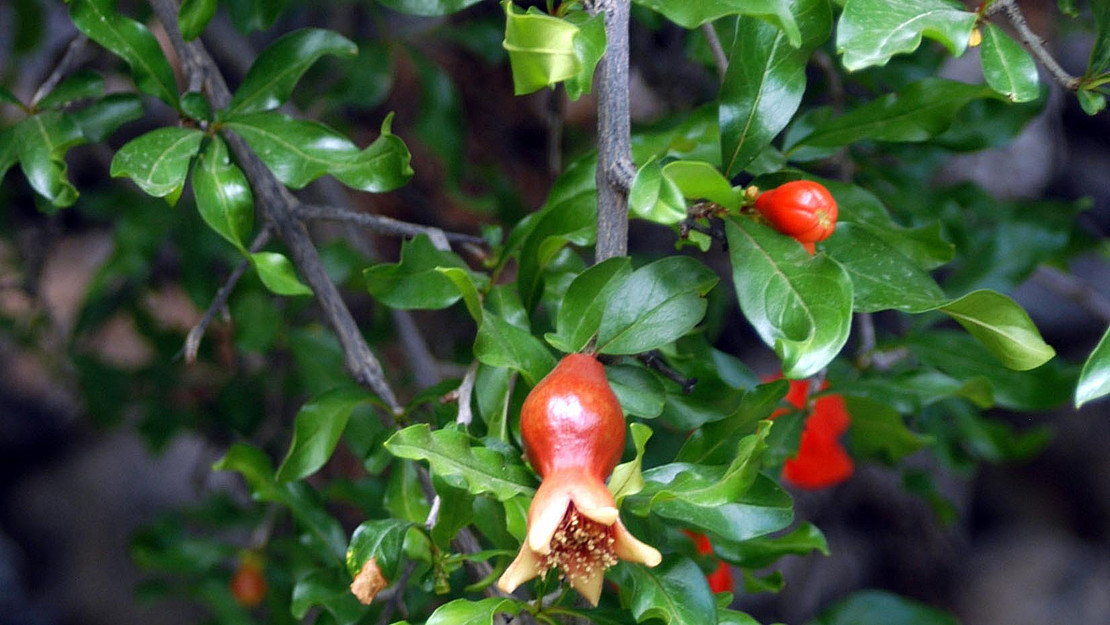Climate Change Endangers Fruit Harvest
 Image: Andreas Bürkert.
Image: Andreas Bürkert.In mountainous regions of the Arabian Peninsula, climate change is reflected not only in an increase in the mean annual temperature, but above all in a sharp reduction in the number of cold hours, which are important for fruit blossoming. Cold hours are defined as the number of hours within a given time period when the temperature is between 0°C and 7.2°C. Their absence can lead to a severe reduction in fruit yield and ultimately to the disappearance of entire fruit species with dramatic consequences for plant biodiversity, the livelihood of local farmers and tourism.
Agricultural ecologist Prof. Dr. Andreas Bürkert from Kassel University and climate physiologist Prof. Dr. Eike Lüdeling from Bonn University, together with their collaborators, analyzed climate data including distribution patterns of when and where fruit trees occur in mountain oases of Oman. Using a simulation, the researchers predicted negative effects on fruit flowering for a 1°C to 2°C increase in minimum temperature.
"The results show that the high altitudes of the Arabian Peninsula are surprisingly clear indicators of climate change, similar to what is known from high mountain glaciers," summarizes Prof. Dr. Andreas Bürkert, head of the Department of Organic Crop Production and Agroecosystem Research at Kassel University.
Fruit harvest at risk in high altitudes in Arabia
Building on years of research funded by the German Research Foundation (DFG), the scientists used newly collected data with high temporal resolution and compared it with predictions of global climate scenarios. Based on the results, the scientists expect that during the 21st century, the lower-lying mountain oasis of Masayrat ar Ruwajah (1030 m above sea level) will no longer experience cold spells. However, pomegranate trees need about 100 - 200 cold hours a year to blossom and bear fruit, and apples need as much as 400 - 1,800 cold hours. Other fruit trees, such as walnut, peach, apricot, and plum, are also at risk from temperature increases.
The innovative, interdisciplinary approach can also be applied to other mountain regions around the world to assess the impact of climate change on biodiversity.
Bürkert, Lüdeling and their collaborators Dr. Eduardo Fernandez and Beke Tietjen published their results in the renowned international journal Climatic Change under the title "Revisiting climate change effects on winter chill in mountain oases of northern Oman": doi.org/10.1007/s10584-020-02862-8
Contact:
Prof. Dr. Andreas Bürkert
Head of Department of Organic Crop Production and Agroecosystem Research in the Tropics and Subtropics
Tel.: 05542 98-1228
E-Mail: buerkert[at]uni-kassel[dot]de